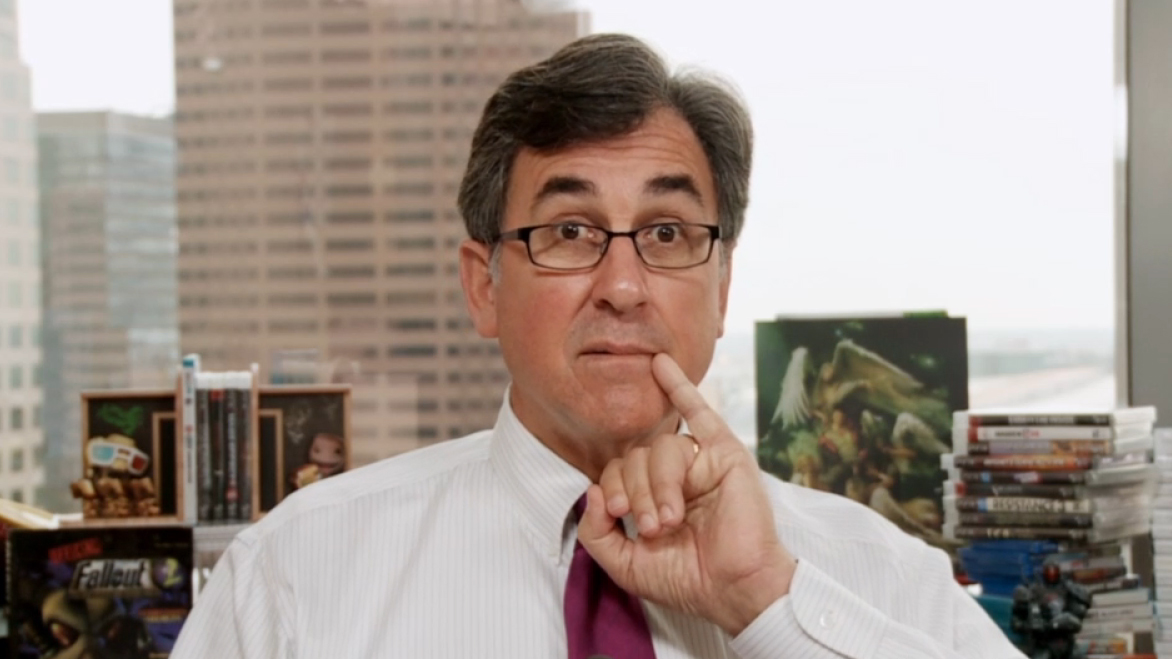Analyst predicts Western developers will shun Nintendo NX
Pachter was right about the release date, but can lightning strike twice?

Sign up for breaking news, reviews, opinion, top tech deals, and more.
You are now subscribed
Your newsletter sign-up was successful
During a recent episode of his Pachter Factor show on Siftd, popular video game industry analyst Michael Pachter indicated he didn't think the Nintendo NX would see much support from third-party developers in the West.
He remarked, "[With] the NX, I think you are going to see very low third-party support outside of Japan unless the thing is a hit."
Despite the risk Pachter noted that Nintendo's cash reserves, which he estimates to be around $10 billion, would carry it through a possible console failure. He said that "[in] the worst case if the NX is a bust, they will lose half a billion."
We ran Pachter's numbers through techradar's resident supercomputer which revealed that this would leave Nintendo with around $9.5 billion in cash. In other words, the analyst is less worried about Nintendo going bust, and more about it not making the most of its assets.
A bumpy track record
Pachter's comments come just a week after his prediction about the NX's release date was proved to be correct. In March this year, in an interview with GamingBolt, Pachter predicted that the NX would be released in 2017. In their financial results last week, Nintendo confirmed this would be the case.
However the analyst has had some high-profile misses with his predictions in the past. Back in 2008 Pachter was convinced that Nintendo would release a HD version of its Wii console.
His reasoning was that were Nintendo to release a console that equalled the power of the PS3 and Xbox 360, then developers would find it easier to port games from those systems to work on the Wii HD. Its library of available titles would subsequently increase and lead to more console sales for Nintendo.
Sign up for breaking news, reviews, opinion, top tech deals, and more.
Nintendo's Wii U did eventually match the power of the PS3 and Xbox 360, but it did so in 2012, just a year before the PS4 and Xbox One became the dominant players in the market.
Nintendo's tactic of releasing hardware that is underpowered relative to its competitors has its benefits, but it's not without its significant disadvantages.
On the plus side, Nintendo's cheaper hardware was historically (until the WIi U that is) sold at a profit, while competitors have to initially sell their console's at a loss in order to later make up the money through software sales.
This tactic worked wonders with the original Wii, which was a bestseller in spite of its relatively basic graphics due to its innovative control scheme.
However the disadvantage of this practice is that developers have a much harder job porting their existing Xbox and PlayStation titles to the console without significantly downgrading the power it takes to run them.
The Wii U suffered as a result of this problem, with relatively few third party developers releasing their games on the system. Its tablet-style controller wasn't enough to make up for its last-generation hardware.
This is likely what is informing Pachter's comments. With hardware that is significantly less powerful than the competition, developers will have to work harder to get their games to run on the system, and are hence less likely to support it.
Nintendo has not yet announced a launch lineup for the NX, but fingers crossed it includes a number of Western releases alongside a new Legend of Zelda launch title.
- Read everything we currently know about the Nintendo NX
Via Nintendo-Insider

Jon Porter is the ex-Home Technology Writer for TechRadar. He has also previously written for Practical Photoshop, Trusted Reviews, Inside Higher Ed, Al Bawaba, Gizmodo UK, Genetic Literacy Project, Via Satellite, Real Homes and Plant Services Magazine, and you can now find him writing for The Verge.